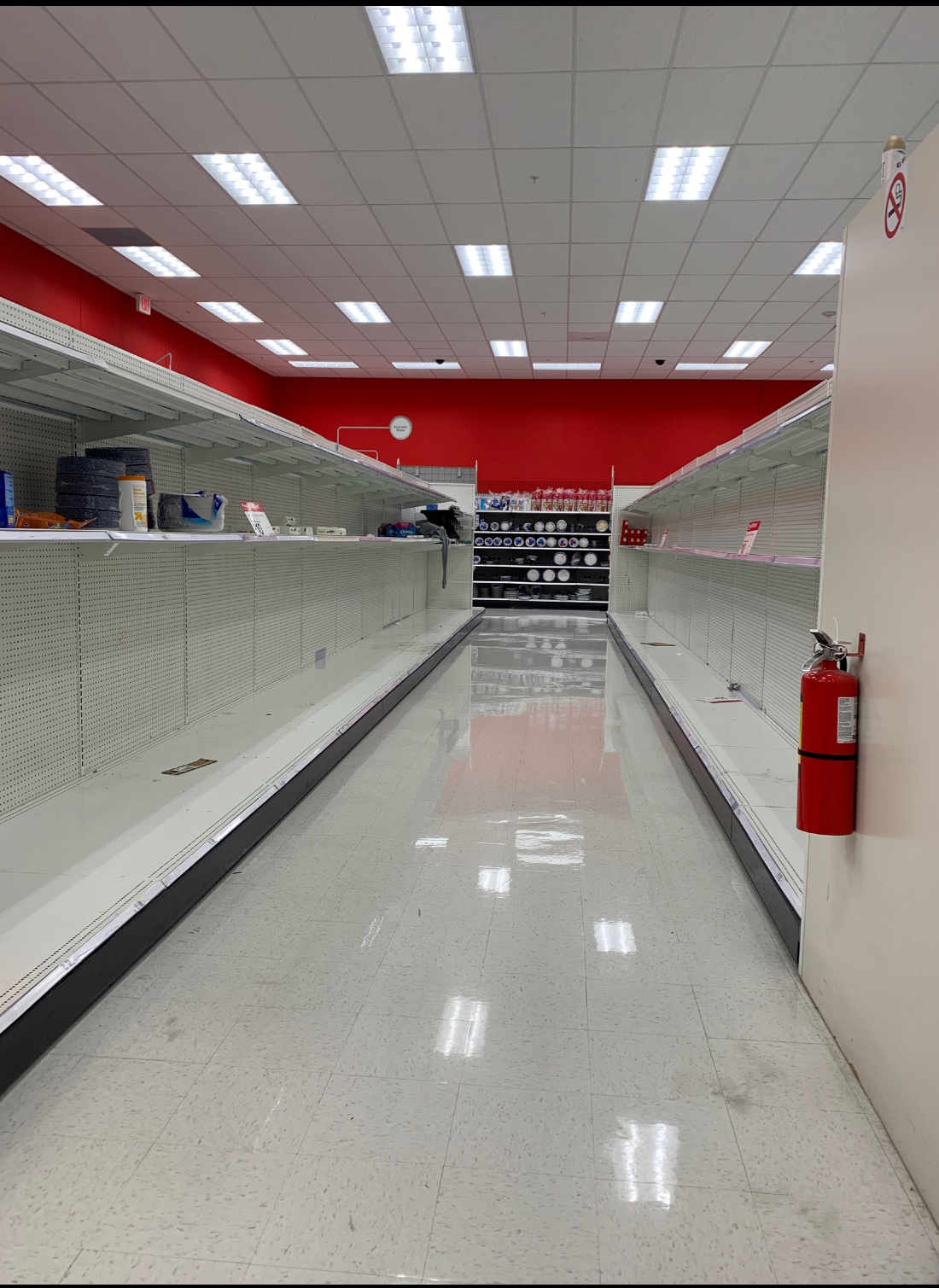By Alexandra Ferragamo, Staff Writer

Due to the recent outbreak and spread of COVID-19, a viral respiratory illness, the nation is being impacted in many ways. One of the most unorthodox practices Americans are engaging in during this time is panic purchasing.
Panic purchasing is defined by Oxford as the action of buying large quantities of a particular product or commodity due to sudden fears of forthcoming shortage or price increase.
As the virus spreads, shelves in stores are clearing at breakneck speed. This was an anticipated reaction from the public due to individuals’ tendencies to stock up during natural disasters such as tornadoes or hurricanes in the fear of never being able to shop for essentials again.
As some people buy products in bulk, they feel secure knowing that they have extra. However, this deprives other people of the same products. In normal circumstances, supply and demand are balanced, but when people are excessively anxious about a situation, the demand out strips the supply.
“In some aisles there’s not a single thing on the shelves. It’s like a bad science fiction movie, in a way,” said Robin Ferragamo (63), a nurse from Staten Island. “When I went food shopping, it was so silent that you could hear a pin drop.”
From non-perishable food, to hygiene and cleaning products, thousands of items are being purchased. Some states’ governments such as California have decided to take charge of sales in various stores to prevent shortages.
But not everyone is participating in sales control which creates stockpiling and or complete depletion of certain items, according to CNBC’s official website. As of right now, toilet paper is the most sought-after product. But it is uncertain why people are hoarding it.
Besides toilet paper, people are purchasing large quantities of hand sanitizer and disinfectant wipes.
“The best ways to remain healthy during this time are practicing good hygiene, sticking to a healthy diet, disinfecting all your items before you enter your home, and social distancing,” Kristi Simonetti, a senior nursing major at Wagner College, said.





Be First to Comment